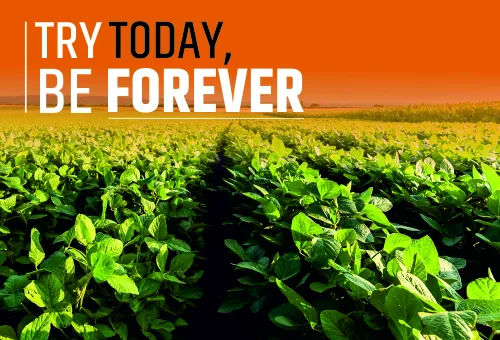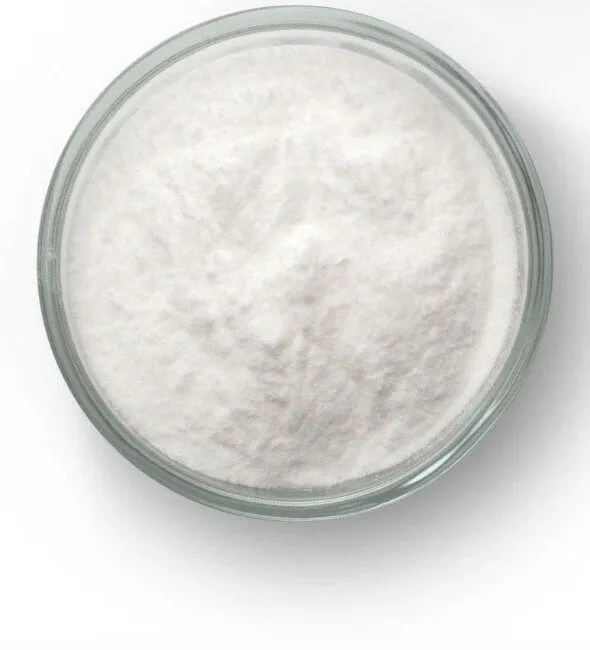Sodium bicarbonate, also commonly referred to as baking soda, is not only a kitchen staple used for baking—indeed, it's a force in agriculture. This pure white powder has been finding its way onto the shelves of farming and gardening supplies due to its potential to improve soil, guard against crop damage, and keep farms clean naturally. Cheap, sustainable, and adaptable, sodium bicarbonate is turning out to be a go-to tool for sustainable agriculture. In this in-depth blog post, we will discuss 10 real-world applications of sodium bicarbonate for farming, dissecting how it works, why it works, and how to implement it on your farm or garden—all in plain, easy-to-grasp language.
Understanding Sodium Bicarbonate in Agriculture
Let's begin with a good understanding of what sodium bicarbonate is and why it is important in agriculture. Sodium bicarbonate, also known as baking soda (chemical formula: NaHCO₃), is a naturally occurring substance with weak alkaline characteristics. This alkalinity makes it able to counteract acids, interfere with pest activities, and provide an environment that is less favorable to some pathogens. It’s non-toxic in small amounts, biodegradable, and safe for use around plants, animals, and humans when handled properly. Whether you’re a small-scale gardener or a commercial farmer, sodium bicarbonate offers a budget-friendly way to tackle common agricultural challenges. Let’s explore its top 10 applications in detail.Agricultural Uses of Sodium Bicarbonate
1. Natural Fungicide for Crop Protection
Fungal infections such as powdery mildew, blight, and leaf spot can destroy vegetables like tomatoes, cucumbers, and grapes. Sodium bicarbonate acts as a natural fungicide to counter these attacks. Its alkaline property changes the pH on the surface of plants, making it challenging for fungi to survive. To apply it, combine a teaspoon of sodium bicarbonate and a quart of water and a drop of liquid soap to keep it clinging to leaves. Spray this mixture onto infected plants 7-10 days apart, particularly in wet weather. It is a kind yet effective technique that minimizes the use of aggressive chemical fungicides.2. Soil pH Balancer for Healthier Growth
Acidity in the soil can inhibit the growth of crops, trapping essential nutrients that the crops require for growth. Sodium bicarbonate serves as a natural buffer to amend excessively acidic soils. For instance, plants such as corn, beans, and wheat grow well in a pH level of 6.0-7.0, while acidic soils (less than 6.0) can limit their growth. To use sodium bicarbonate, lightly broadcast about one pound per 100 square feet of soil, then work it in and water well. Always check your soil's pH first with a basic kit to prevent over-raising it—too much sodium bicarbonate can make soil too alkaline, which creates its own set of issues.3. Crop Protector from Pests
Ants, slugs, and cockroaches are pests that can devastate crops and stored produce. Sodium bicarbonate provides a chemical-free method to repel them. Its dehydrating properties kill soft-bodied insects on touch. Sprinkle a thin amount of sodium bicarbonate around plants' bases, along garden beds, or beside storage spaces. To get rid of slugs, you could even sprinkle some on them when you catch them feeding on your lettuce. This hack will not hurt good bugs such as bees or ladybugs, so it is a good option for integrated pest management.Improving Plant Health with Sodium Bicarbonate
1. Cleaner Irrigation Systems for Improved Water Flow
Irrigation systems are the lifeblood of many farms, but mineral deposits such as calcium or lime scale can clog pipes and emitters, cutting water efficiency. Sodium bicarbonate breaks up these deposits without harming equipment. To decontaminate your system, mix one tablespoon of sodium bicarbonate per gallon of water and run it through your irrigation pipes for 20-30 minutes. Finish with a plain water rinse. This easy maintenance procedure guarantees your crops receive the water they require, particularly during hot dry periods.
2. Improved Seed Germination for Healthy Beginnings
Seed germination in a speedy and even manner can make or break a bountiful harvest. Sodium bicarbonate may help activate seeds by moistening their hard outer coverings, accelerating the absorption of water. For pea, beet, or okra seeds, pre-treat with a solution containing one teaspoon sodium bicarbonate in a gallon of water for 2-4 hours prior to sowing. Drain and plant as normal. This hack is best suited for hard-shelled seeds and can enhance germination levels, providing your crops with a healthy head start.
3. Leaf Shine and Disease Prevention
Strong photosynthesis relies on healthy leaves, but dust, soil, and fungal spores may cover them, hindering light and inviting disease. Sodium bicarbonate cleanses and shields all at once. Combine one teaspoon of sodium bicarbonate in a gallon of water, wet a soft cloth with the mixture, and wipe leaves of plants such as citrus trees or ornamentals. Or, spray it lightly using a spray bottle. The sodium bicarbonate degrades grime and leaves an alkaline residue that repels fungi, and your plants stay healthy and productive.
Farm Maintenance with Sodium Bicarbonate
1. Livestock Odor Control
Animal habitats such as barns, coops, and pens can become smelly in a hurry with the help of ammonia from manure. Sodium bicarbonate naturally eliminates these odors, enhancing air quality for animals and farmers alike. Dust lightly sodium bicarbonate (one cup per 10 square feet) over bedding or flooring, then sweep up after one or two days. You can also blend it into moist manure heaps to reduce odors. This makes your farm smell better and lowers respiratory distress for animals.2. Long-Lasting Equipment Cleaner
Farm equipment and implements get abused by dirt, rust, and sap. Sodium bicarbonate is a mild abrasive that cleanses without scratching plastic or metal surfaces. Create a thick paste with three parts sodium bicarbonate to one part water and scrub tools such as shovels, hoes, or tractor components with a brush. For hard-to-remove rust, allow the paste to stand for 10 minutes before scrubbing. Clean with water, and your equipment will be restored to its original condition—without harsh chemicals that can corrode with time.Sustainable Farming with Sodium Bicarbonate
1. Compost Accelerator for Rich Soil
Composting is a cornerstone of sustainable agriculture, but acidic materials like fruit peels or coffee grounds can slow the process. Sodium bicarbonate balances the pH, creating a better environment for decomposer microbes. Every few weeks, sprinkle a handful of sodium bicarbonate (about half a cup per cubic yard) over your compost pile and turn it well. This speeds up breakdown, reduces odors, and produces nutrient-rich compost faster—perfect for enriching your fields or garden beds.2. Weed Control Aid for Cleaner Fields
Weeds fight crops for water, light, and nutrients, but sodium bicarbonate can control them in small patches. Combine one tablespoon of sodium bicarbonate with a quart of water and spray it directly on young weeds that are sprouting in cracks, walkways, or between rows. The alkaline solution interferes with their cell structure, and they wilt within days. Use this judiciously and do not spray it close to crops since sodium bicarbonate also impacts desirable plants. It's a useful tip for maintaining non-crop areas neat.Why Sodium Bicarbonate is a Farming Essential
Sodium bicarbonate is unique in agriculture with its ease and effectiveness. It's a natural choice over man-made pesticides, fertilizers, and cleaning products, something that speaks to the increased need for eco-friendly agriculture. And it's very cheap—pennies per application versus commercial methods. From crop protection to farm infrastructure, sodium bicarbonate works without hurting the environment. And since it's multi-purpose, one product serves to take the place of several, saving room and dollars.Tips for Using Sodium Bicarbonate on Farm
- Test first: Sprinkle sodium bicarbonate onto a small patch or a few plants before going whole hog.
- Measure carefully: Too much sodium bicarbonate can lift soil pH too high or stress plants—use only recommended quantities.
- Store correctly: Store sodium bicarbonate in a dry, sealed container to avoid clumping or loss of effectiveness.
- Pair wisely: Mix sodium bicarbonate with water or soap, but don't mix it with acidic ingredients such as vinegar unless meant.
Sodium bicarbonate is a farmer's secret ally, providing useful solutions for healthier plants, cleaner farms, and green growth. These 10 applications—from combating fungi to speeding up compost—demonstrate how this common substance can revolutionize your farming activities. For consistent supply, use Bulkagrochem.com, a prime agrochemical manufacturer with specialisation in good-quality sodium bicarbonate in bulk packs. Tending to your backyard garden or cultivating huge extents of farmland, Bulkagrochem.com supplies the quantities and quality required to sustain your activity. Get bulk stocks now and watch the power of sodium bicarbonate benefit your farm.
FAQ’S
1.What is the role of sodium bicarbonate against plant fungi?
Sodium bicarbonate increases leaf pH, making a situation where fungi cannot survive.
2. Can sodium bicarbonate harm soil?
Too much can over alkalize soil—use it sparingly and monitor pH frequently.
3. Is sodium bicarbonate organic-approved?
Yes, sodium bicarbonate is acceptable under organic farming when used responsibly.
4. How much sodium bicarbonate corrects acidic soil?
Begin with one pound per 100 square feet, varying according to soil testing.
5. Does sodium bicarbonate keep all pests away?
It's best used on soft-bodied insects such as slugs and ants, not hard-shell insects.
6. Can sodium bicarbonate accelerate composting?
Yes, sodium bicarbonate counteracts acidity, making it easier for microbes to work more quickly.
7. Is sodium bicarbonate safe on all crops?
Most can handle it, but fragile plants will require smaller doses—test first.
8. How often can I apply sodium bicarbonate on plants?
On fungi, use every 7-10 days; for other applications, as needed but not daily.
9. Does sodium bicarbonate damage the environment?
No, sodium bicarbonate is a natural breakdown and is environmentally friendly.
10. Where do I purchase bulk sodium bicarbonate for agriculture?
Bulkagrochem.com sells high-quality sodium bicarbonate in bulk quantities for agricultural purposes.






